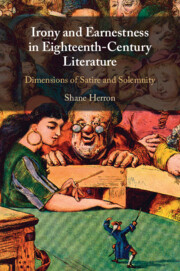
- Cited by 1
-
Cited byCrossref Citations
This Book has been cited by the following publications. This list is generated based on data provided by Crossref.
Turner, Joseph Saggini, Francesca Carver, Dylan and Bender, Ashley 2024. XIThe Eighteenth Century. The Year's Work in English Studies,
- Publisher:
- Cambridge University Press
- Online publication date:
- January 2022
- Print publication year:
- 2022
- Online ISBN:
- 9781108993227
- Subjects:
- Literature, English Literature 1700-1830


